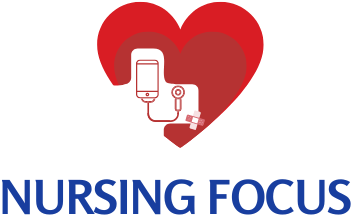Technology has significantly changed nursing practice and education, transforming how nurses are educated, provide care, and work with other healthcare professionals. Technology has brought nursing education to a great advancement and exploration which made the learning easier and smarter.

The following are some significant ways that technology has impacted nursing education and practice:
1. Enhanced Learning Opportunities:
Technology has increased nursing students' access to instructional resources and enhanced their learning opportunities. Students can learn at their own pace and engage in critical thinking exercises and realistic clinical scenarios using online platforms, virtual simulations, and interactive learning modules. These resources support the development of clinical skills and decision-making abilities in students.
2. Simulation-Based Training:
The use of simulation technologies in controlled learning environments has revolutionized nursing education. Without endangering real patients, nursing students can practice clinical abilities, make clinical decisions, and handle challenging patient scenarios. In a secure and encouraging atmosphere, simulations also foster teamwork and communication abilities.

3. Electronic Health Records (EHRs):
The use of electronic health record systems has revolutionized nursing practice by speeding documentation, enhancing patient information access, and promoting communication and collaboration among healthcare professionals. EHRs make it possible for nurses to
- Access patient information rapidly
- Monitor changes in health status
- Take part in care planning
- Decision-making
4. Point-of-Care Devices and Wearable Technology:
Thanks to technological improvements, nurses may now
- monitor patients' vital signs
- gather data
- track health metrics
in real-time by using wearable sensors and portable point-of-care devices. This supports proactive therapies, facilitates early identification of changes in patients' situations, and improves patient safety.
5. Data Analytics And Informatics:
To examine big datasets of healthcare data, spot trends, and draw valuable insights, nurses can make use of data analytics and informatics tools. This promotes the use of evidence-based practices, efforts to improve the quality of care, and clinical judgment. By leveraging data-driven evidence, nurses can contribute to research and the creation of healthcare policies.

Despite the many advantages of technology, there are several issues that need be addressed, including data security and privacy, ensuring that nurses are digitally literate, and striking a balance between the use of technology and the human touch in patient care. The use of technology by nurses must be taught in a way that is efficient, moral, and improves the provision of patient-centered care.
For more nursing tips and guidance kindly check out our mfocusreview.com website
To download our Nursing Focus app, click the following link:
Android Store:
https://play.google.com/store/apps/details?id=com.nursingfocus
Apple Store:
https://apps.apple.com/app/nursing-focus/id1633014109

